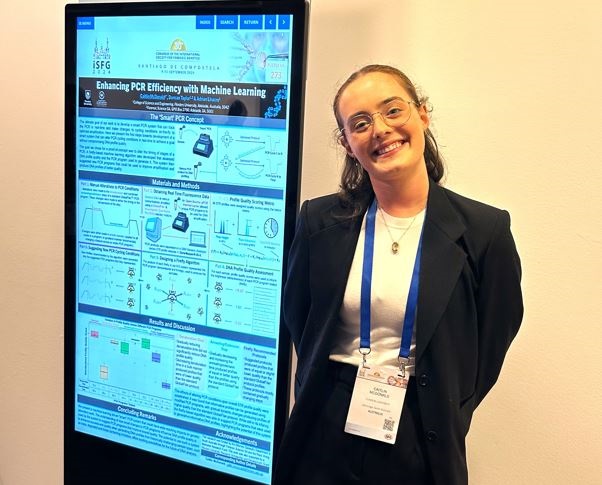AI-Powered Smart PCR System to Revolutionize Clinical Diagnostics
Posted on 23 Oct 2024
Polymerase chain reaction (PCR) is a widely used laboratory technique for amplifying or copying small segments of genetic material, applicable in areas such as DNA fingerprinting, diagnosing genetic disorders, and detecting pathogens like COVID-19. From medical diagnostics to forensic testing and national security, PCR DNA profiling has transformed high-throughput sampling in the 21st century, yet little has changed since its inception in the 1980s. Traditional DNA amplification requires that all parameters be established before the process begins, overlooking the variations that may exist between samples and conditions. Even minor enhancements in PCR performance could significantly affect the hundreds of thousands of DNA samples amplified each year, especially when dealing with degraded samples. Researchers have now made advancements in critical DNA testing by incorporating machine learning into DNA profiling.
The new research by experts at Flinders University (Bedford Park, SA, Australia) revealed substantial improvements in both the quality of DNA profiling and the efficiency of PCR cycling conditions through the application of artificial intelligence (AI) techniques. In their study, the researchers employed machine learning to develop new "smart PCR" systems, focusing on large-scale potential modifications and quicker cycling conditions for faster and more accurate results. Their findings, published in an article in Genes, demonstrated how to set up a system that enables a PCR process to provide real-time feedback, allowing a machine-learning algorithm to make instantaneous adjustments to PCR conditions.

By leveraging advancements in machine learning and sensor technology, the researchers have transformed the PCR process from a one-size-fits-all approach to a tailored and optimized experience, achieving higher quality and greater quantities of DNA in less time than previously possible. According to the researchers, if harnessed effectively, AI and machine learning could significantly enhance the sensitivity of PCR testing. With continued research, these AI-ML methodologies hold promise for improving the quality of trace DNA samples.
“Our system has the potential to overcome challenges that have hindered forensic scientists for decades, especially with trace, inhibited, and degraded samples,” said College of Science and Engineering PhD candidate Caitlin McDonald, who led the study. “By intelligently optimizing PCR for a wide variety of sample types, it can dramatically enhance amplification success, delivering more reliable results in even the most complex cases.”













